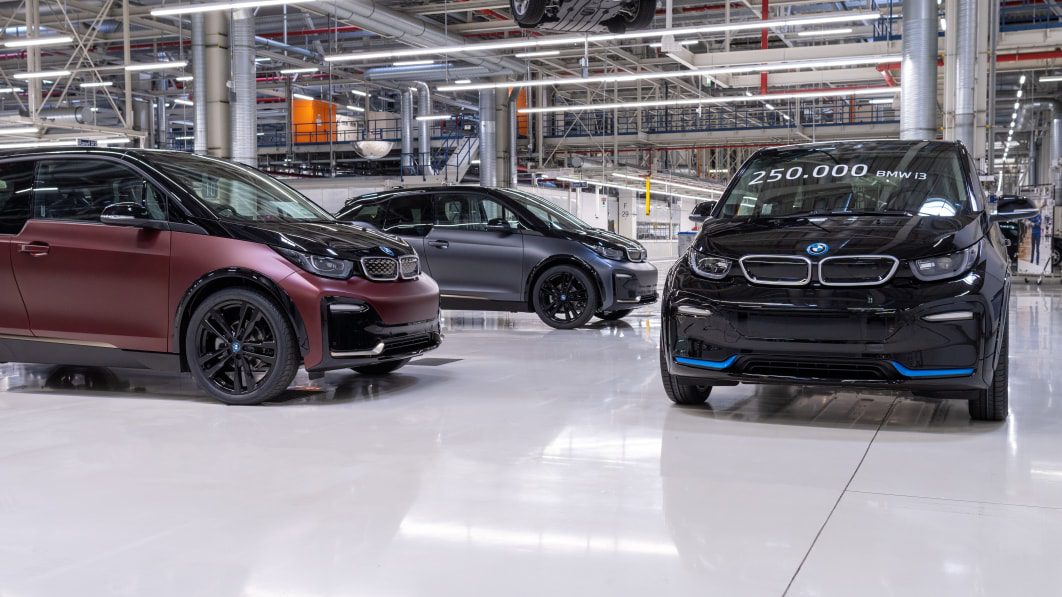BMW i3 ends production with limited HomeRun Edition

After a decade and 250,000 units produced, it’s the end of the line for the BMW i3. Production of the premium electric compact is winding down at BMW’s Leipzig factory, but before it ends for good BMW is releasing a limited batch of HomeRun Edition cars as a sendoff.
With so many electric vehicles on the market (and on the horizon) today, it’s difficult to remember that when the BMW i3 debuted 10 years ago, the EV selection was quite small. The most prevalent competitors were the Nissan Leaf and Tesla Model S, neither of which directly rivaled the i3.
The BMW i3 took on the shape of a new-age Isetta, a departure from the sports sedans and SUVs that the brand was known for. While it was known primarily for being BMW’s first mass-produced electric vehicle, it also advanced the company’s composite construction know-how with its carbon fiber reinforced plastic (CFRP) shell, and its aluminum chassis containing a battery pack and motor. Partly recycled materials were used in its thermoplastic skin, and BMW says that 25% of the interior was recycled material. Door panels were made from fibers of the kenaf plant, and parts of the dashboard were made from eucalyptus wood.
According to BMW, just a few days ago i3 production surpassed the quarter-million threshold. A black i3 made its way down the assembly line with a “250,000 Danke [Thanks]” sign on its roof. It was a significant milestone reached before the i3 ended its run altogether.
Speaking of final runs, the last 10 units of BMW i3 will be so-called HomeRun Editions. Based on the i3s trim level, they will be finished in one of two colors from the BMW Individual program. Both are matte paints, either Frozen Dark Grey or Frozen Red II. Cabin-wise, they will come with the Suite interior option, which nets leather upholstery in Vernasca Dark Truffle, leather dash pad, leather steering wheel with galvanized trim, Carum Grey roof lining, as well as ambient and welcome lighting.
Post-i3, the Leipzig plant will continue to produce electric drivetrains and battery packs for other BMW Group products. Next year, the factory will start churning out the third-generation Mini Countryman, which will come with a full-EV drivetrain. As such, it will become the first facility where BMW and Mini models are manufactured side by side.
Having been sold in more than 74 countries, the BMW i3 has been a noteworthy step in the transition to EVs. The i3 will continue to leave its mark at the site, though. An energy storage farm uses 700 i3 batteries to store energy produced by four wind turbines, which BMW says, helps make its manufacturing carbon-neutral.



